migration
Filter by...
-
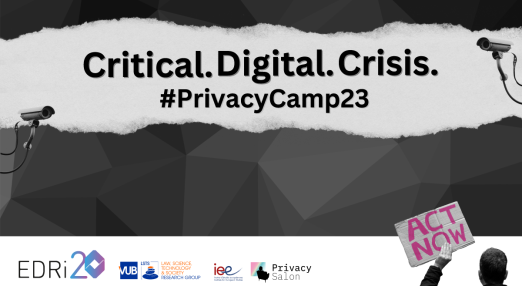
#PrivacyCamp23: Event summary
In January 2023, EDRi gathered policymakers, activists, human rights defenders, climate and social justice advocates and academics in Brussels to discuss the criticality of our digital worlds. We welcomed 200+ participants in person and enjoyed an online audience of 600+ people engaging with the event livestream videos. If you missed the event or want a reminder of what happened in a session, find the session summaries and video recordings below.
Read more
-
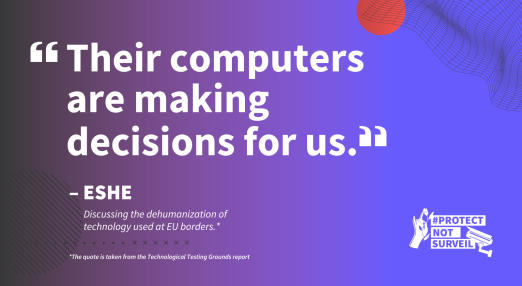
#ProtectNotSurveil: EU must ban AI uses against people on the move
As the European Parliament regulates the most harmful AI technologies, a coalition of civil society calls on the EU to #ProtectNotSurveil people on the move.
Read more
-

The UK will treat online images of immigrants crossing the Channel as a criminal offence
On 17 January, the United Kingdom (UK) government announced that online platforms will have to proactively remove images of immigrants crossing the Channel in small boats under a new amendment to be tabled to the Online Safety Bill. The announcement, intended to bolster the UK’s hostile immigration policy, has been met with concern among the British public and charities working with people on the move.
Read more
-
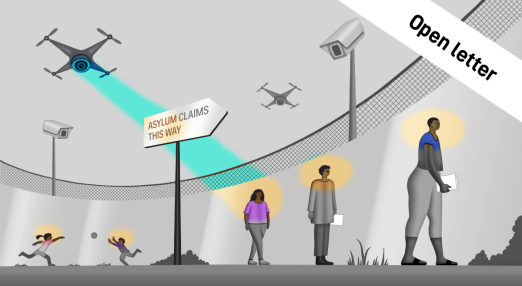
Civil society calls for the EU AI act to better protect people on the move
In this open letter, 195 organisations and individuals call on the EU to protect people on the move. As the European Parliament amends the Artificial Intelligence Act (AI Act), preventing AI harms in the field of AI and migration is vital. AI systems are increasingly developed, tested and deployed to judge and control migrants and people on the move in harmful ways.
Read more
-
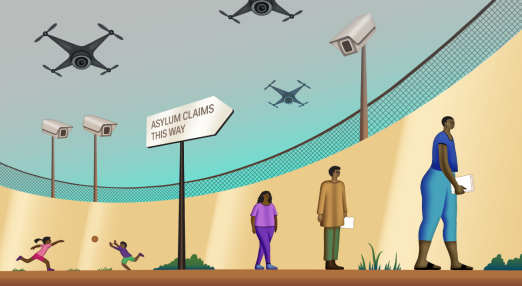
Warnings against arbitrariness and mass surveillance in EURODAC
Four Members of the European Parliament in charge of leading the negotiations sent additional questions on data protection related to the EURODAC proposal to the EDPS. This comes as a result of the concerns of fundamental rights violations raised by several organisations protecting the rights of people on the move, children and digital rights, including EDRi, in an open letter. Read a summary of the EDPS' answers.
Read more
-
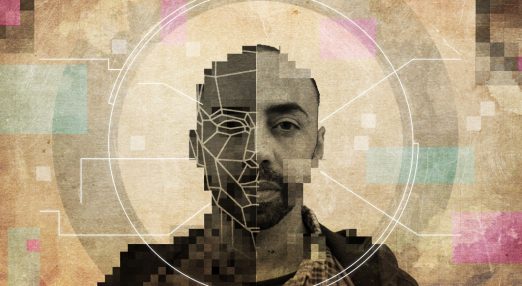
The EU AI Act: How to (truly) protect people on the move
The European Union Artificial Intelligence Act (EU AI Act) aims to promote the uptake of trustworthy AI and, at the same time, protect the rights of all people affected by AI systems. While EU policymakers are busy amending the text, one important question springs to mind: whose rights are we talking about?
Read more
-

Regulating Migration Tech: How the EU’s AI Act can better protect people on the move
As the European Union amends the Artificial Intelligence Act (AI Act) exploring the impact of AI systems on marginalised communities is vital. AI systems are increasingly developed, tested and deployed to judge and control migrants and people on the move in harmful ways. How can the AI Act prevent this?
Read more
-

European court supports transparency in risky EU border tech experiments
The Court of Justice of the European Union has ruled that the European Commission must reveal initially-withheld documents relating to the controversial iBorderCtrl project, which experimented with risky biometric ‘lie detection’ systems at EU borders. However, the judgement continued to safeguard some of the commercial interests of iBorderCtrl, despite it being an EU-funded migration technology with implications for the protection of people’s rights.
Read more
-
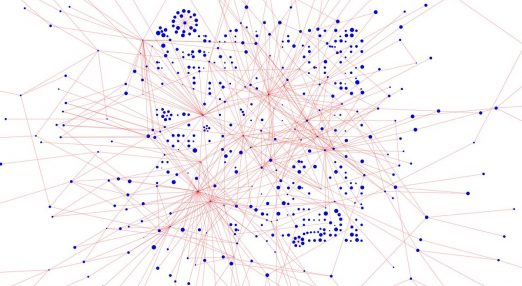
Eurodac: Council seeks swift agreement on expanded migrant biometric database
The Slovenian Presidency of the Council is planning to accelerate negotiations on a vast expansion of the Eurodac database, which will hold sensitive data on millions of asylum seekers and migrants in an irregular situation, by 'delinking' the proposed rules from other EU asylum and migration laws under discussion.
Read more
-

Intensified surveillance at EU borders: EURODAC reform needs a radical policy shift
In an open letter addressed to the European Parliament Civil Liberties, Justice and Home Affairs Committee, 34 organisations protecting the rights of people on the move, children and digital rights including European Digital Rights (EDRi) urge policymakers to radically change the direction of the EURODAC reform – the European Union (EU) database storing asylum seekers’ and migrants’ personal data - in order to respect fundamental rights and international law.
Read more
-

Regulating Border Tech Experiments in a Hostile World
We are facing a growing panopticon of technology that limits people’s movements, their ability to reunite with their families, and at the worst of times, their ability to stay alive. Power and knowledge monopolies are allowed to exist because there is no unified global regulatory regime governing the use of new technologies, creating laboratories for high-risk experiments with profound impacts on people’s lives.
Read more
-

Eurodac database repurposed to surveil migrants
Eurodac is the EU database used to store asylum seekers’ and refugees’ data, as well as certain categories of “irregular” migrants. By the end of 2019, the EU stored almost 6 million peoples’ fingerprint sets in the database. Research show how legislative developments transform the Eurodac database into “a powerful tool for mass surveillance”, endangering migrants' fundamental human rights.
Read more
